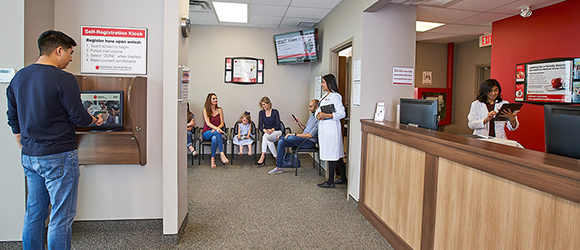What You Need to Know About Diabetes
What is Diabetes?
Diabetes is a chronic and often debilitating metabolic disorder. Metabolism refers to the way our bodies use digested food for energy and growth. A person with diabetes has a condition that prevents their body from producing insulin, or properly using the insulin it produces.
This leads to high levels of glucose in the blood, which can damage organs, blood vessels and nerves. The body needs insulin in order to effectively use glucose as an energy source.
What Are the Different Types of Diabetes?
There are 3 types of Diabetes:
Diabetes Type 1
10% of the diabetic population is incapable of producing insulin.
Diabetes Type 2
90% of the diabetic population either does not produce enough insulin, or the insulin available is not working as intended.
Gestational Diabetes
Occurs in 2-4% of pregnant women.
What Causes Diabetes?
Type 1 diabetes occurs as a result of the destruction of the insulin-producing cells in the pancreas.
It’s unclear why these cells have been damaged, but the most likely cause is the body having an abnormal reaction to the cells.
Type 2 diabetes is due to a combination of genetic and lifestyle factors.
Symptoms
Signs and symptoms of diabetes include:
- Unusual thirst
- Frequent urination
- Weight change (gain or loss)
- Extreme fatigue or lack of energy
- Blurred vision
- Frequent or recurring infections
- Cuts and bruises that are slow to heal
- Tingling or numbness in hands or feet
- Trouble getting or maintaining an erection
If left untreated or poorly managed, diabetes can lead to complications such as:
- Heart disease
- Kidney disease
- Eye disease
- Impotence
- Nerve damage
Treatment
At Appletree, we can help you manage your Type I or Type II Diabetes. Whether you are newly diagnosed, or have been living with your diabetes for some time, we can help.
Appletree offers diabetic clinics by appointment, for Type I or Type II diabetes. Supervised by specialists, these clinics are designed to assess your needs and help you manage your diabetic risk factors, including your blood pressure, weight, blood sugar levels and social habits.
You will receive nutrition and exercise advice, and will set goals to keep your condition in check. Your treatment plan will be analyzed and reviewed every three months to ensure that you receive the care you require.
Referrals from your family doctors are welcome.
How Can I Access This Service?
In-Clinic
This service is available at select Appletree Medical Centres. Appointments are required.
Book Your Appointment
The following schedules vary frequently, always consult our website to view the most up-to-date availability. Diabetes Program appointments are available at the following Appletree Medical Centres:
Ottawa
2948 Baseline Road
Monday: 9:00am – 6:00pm
Tuesday: 9:00am – 4:00pm
Wednesday: 9:00am – 4:00pm
2116 Montreal Rd
Monday: 9:00am – 5:00pm
Greater Toronto Area
3355 Hurontario St.
Monday: 10:00am – 1:00pm
Tuesday: 10:00am – 1:00pm
Wednesday: 10:00am – 1:00pm
Friday: 10:00am-11:00am
What to Expect During Your Appointment
During your appointment, the technician will:
- Update your chart with your current medications and medical conditions
- Record your height, weight, abdominal girth, blood sugar, urine dip, blood pressure and hip measurements
- Update any vaccines that are recommended
- Examine your feet
- Provide information on nutrition, foot care, and exercise
After Your Appointment
We will provide you with online access to all of your medical results and reports, through your secure and confidential Patient Portal, so that you may access them from anywhere, at any time.
You can also record measurements taken at home, and save them in your Patient Portal, to discuss with your physician during your next appointment.
How to Book
Frequently Asked Questions
Do I need a referral to be seen in the Diabetes Program?
Yes, a referral is required to be included in the Diabetes Program. Please provide the Diabetes Referral form to your doctor and fax it to the number indicated. We will contact you with appointment details.
How often will I have an appointment?
After the initial consultation, you will be booked for follow up appointments every three months, to monitor and manage your condition.
My blood sugar is too high/too low but my appointment isn't for another month - what should I do?
Don’t wait, see your physician right away. Any changes made to your treatment plan should be discussed during your regular Diabetes Program follow-up appointment.



